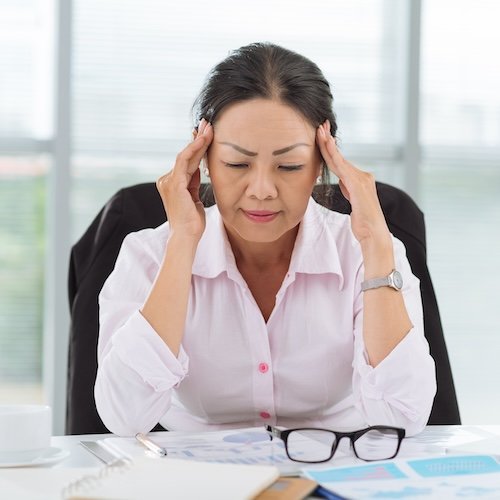When it comes to caring for our mental health, we often think of therapy and medication as the only options. But what if there was another way to help improve your mental health that is not only effective, but also free? Simply, that’s exercise!
Regular exercise is often recommended as a way to improve mental health, and a growing body of research suggests that it can have a profound impact on our well-being. In this read, we’ll explore the latest findings on the impact of exercise on mental health, and how you can use these findings to improve your own well-being.
- Sweat for Better Mood
It is no secret that exercise has many benefits for our physical health. Additionally, recent research has indicated that engaging in exercise can have a positive impact on our mood and stress levels. If you’re struggling with mood disorders, you might not feel like doing much of anything. Serotonin, a hormone that helps to stabilize moods and anxiety, regulate feelings of well-being and happiness, and control sleep, is often imbalanced or low in mood disorders. Exercise helps you feel better and improves your mood because it releases serotonin along with endorphins, chemicals which have mood-boosting and pain-relieving properties. So if you’re feeling low, dust off your sneakers and get moving!
- A Positive Sense of Well-Being
Exercise has many benefits, and one of its important-but-often-overlooked effects is the feeling of satisfaction from accomplishing a certain goal. People who exercise regularly feel more confident, have more energy, and tend to have a positive outlook in life.
Physical activity can boost our confidence over time by enhancing our perception of our overall physical traits, strength and endurance, and training skills.. There is a sense of fulfillment in improving your overall physique and body composition, dropping one or two inches from your waist, developing stronger core muscles, or simply just doing something to take care of yourself.
- Alleviate Depression and Anxiety
Exercise is a natural and effective support treatment for depression and anxiety, two of the most common mental health disorders in the world. Depression is the leading global cause of ill health and disability. It affects over 300 million people, with an 18% increase from 2005 to 2015, according to WHO. Depression and anxiety can make it hard to want to do anything, let alone get up and exercise. But once you get moving, exercise helps to alleviate symptoms of depression and anxiety. Moving your body can release tension from your muscles, which reduces the feelings of anxiety.
Your likelihood of experiencing improved mental health increases with exercise due to other factors, too. By boosting your social engagement with others who exercise as well, you become less lonely and isolated. Exercising outside under direct sunlight can significantly increase your vitamin D levels, a hormone which helps reduce anxiety and depression’s signs and symptoms. Working out also momentarily takes your attention away from the reason for your anxiety or sadness.
- Get Up and Get Moving for Better Sleep
We all know how it feels to be exhausted but unable to get a good night’s sleep. You toss and turn, trying to get comfortable, but your mind won’t shut off and eventually you just give up. If this sounds familiar, you’re not alone. According to the US Centers for Disease Control and Prevention (CDC), one in three adults are not getting the recommended seven or more hours of sleep per night.
Chronic sleep deprivation has a negative impact on one’s ability to think critically and solve problems. Likewise, sleep issues are widely recognized as having a role in the start and worsening of a variety of mental health issues, such as depression, anxiety, and even suicidal tendencies. But there is hope! Recently, researchers have found that getting up and moving around during the day can actually help improve your sleep quality.
Exercising raises adenosine levels, a neurotransmitter in your central nervous system responsible for regulating your sleep cycle. It causes drops in body temperature that leads to drowsiness. However, avoid doing exercises that can energize you within 3 hours of bedtime as these can interfere with your sleep.
On top of that, when you are well rested and are able to get REM sleep (a level of deep sleep that is characterized by rapid eye movements), the brain’s ability to interpret emotions is facilitated better, enabling you to assess and recall positive thoughts and memories.
- Exercise for New Brain Cells
Exercise isn’t just good for your heart and muscles – it’s also great for your brain! Studies have shown that exercise helps the brain create new cells, improves memory, and can even help prevent cognitive decline.
When it comes to brain health, we often think about things like memory and problem-solving skills. What we don’t always think about is how exercise helps create new brain cells – but it does! In fact, exercise may aid in brain cell regeneration.
As blood flow increases from exercising, the brain is exposed to more oxygen and nutrients. Exercise also induces the release of beneficial proteins such as brain-derived neurotrophic factor (help brain cells survive and grow), dopamine (increases pleasure level) and noradrenaline (causes euphoria) in the brain. New brain cells are produced by our body more quickly when more oxygen, protein, and nutrients are delivered to the brain.
Check out other tips and strategies on how to improve mental health or learn about the other positive effects of exercising, as well as other important information about the different diseases, by visiting the Tamang Alaga website today.
References:
https://www.apa.org/topics/exercise-fitness/stress
https://www.ncbi.nlm.nih.gov/pmc/articles/PMC5068479/
https://www.betterhealth.vic.gov.au/health/healthyliving/exercise-and-mental-health
https://www.excellenceinfitness.com/blog/how-exercise-boost-self-esteem
https://www.healthline.com/nutrition/depression-and-vitamin-d#connection
https://www.cdc.gov/media/releases/2016/p0215-enough-sleep.html
https://www.columbiapsychiatry.org/news/how-sleep-deprivation-affects-your-mental-health
https://www.ncbi.nlm.nih.gov/pmc/articles/PMC7181893/
https://www.dana.org/article/how-does-exercise-affect-the-brain/








